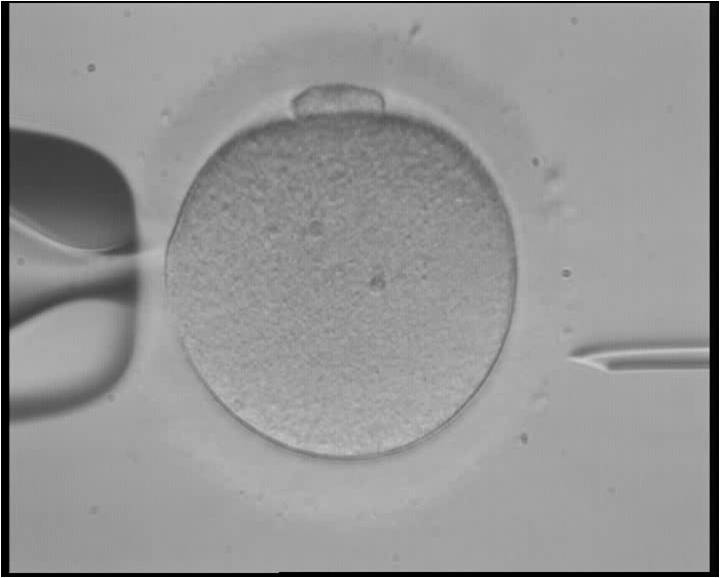Study on Gene-Edited Embryos Aims for Human Reproduction

A paper published today in Nature reported on work led by Oregon Health & Science University (OHSU) researcher Shoukhrat Mitalipov to genetically edit human embryos, apparently with the goal of using this technique for reproductive purposes.
“This is a pivotal point in the push toward genetically modified humans,” said Marcy Darnovsky, PhD, Executive Director of the Center for Genetics and Society. “A small group of scientists and closed committees have taken it upon themselves to move forward with reproductive germline modification technologies, scorning repeated calls by scientists, scholars, regulatory bodies, and civil society organizations around the world to keep this use of genetic engineering off limits. Mitalipov and his collaborators were clearly aware of the widespread calls for democratic deliberation and public engagement on this matter, but flagrantly disregarded them.”
Notably, Mitalipov and colleagues clearly indicate that their research is aimed at gene editing for human reproduction. The justification they offer is to “rescue mutant embryos, increase the number of embryos available for transfer and ultimately improve pregnancy rates.”
“There is no pretense to basic scientific discovery here. The goal is clearly to develop applications that could be marketed in fertility clinics,” said Darnovsky.
“This decision is consequential for all of us – for all of humanity,” Darnovsky said. “Dozens of countries have deliberated about it, and passed laws prohibiting germline alterations. We have not yet engaged in processes that would promote the`broad societal consensus’ about human germline modification that the National Academies of Sciences and other prominent advocates of gene editing have recommended. Until that is achieved, we call on scientists around the world to refrain from research aimed at refining gene editing for use in human reproduction.”
The gene variant targeted in the Mitalipov study increases the risk of Hypertrophic Cardiomyopathy (HCM). Most individuals with HCM have few symptoms and average life expectancy. “The reproductive gene editing envisioned in the Mitalipov study flouts even the weak restrictions recommended in the National Academies report,” Darnovsky said.
As with almost all other inherited diseases, carriers can avoid the transmission of HCM using existing embryo screening techniques. “The claim that germline editing is needed to prevent the transmission of serious inherited disease is deeply deceptive,” said Darnovsky. “It both ignores existing alternatives that don’t require manipulating genes, and demonstrates the impossibility of distinguishing between serious and less serious disease, or between disease and enhancement."
“Allowing any form of human germline modification leaves the way open for all kinds – especially when fertility clinics start offering ‘genetic upgrades’ to those able to afford them,” she continued. “Once those commercial dynamics kick in, we could all too easily find ourselves in a world where some people’s children are considered biologically superior to the rest of us. We need to ask ourselves whether we want that new kind of excuse for extreme social disparities we already tolerate.”
Marcy Darnovsky
1-510-625-0819 x305
mdarnovsky[AT]geneticsandsociety[DOT]org



